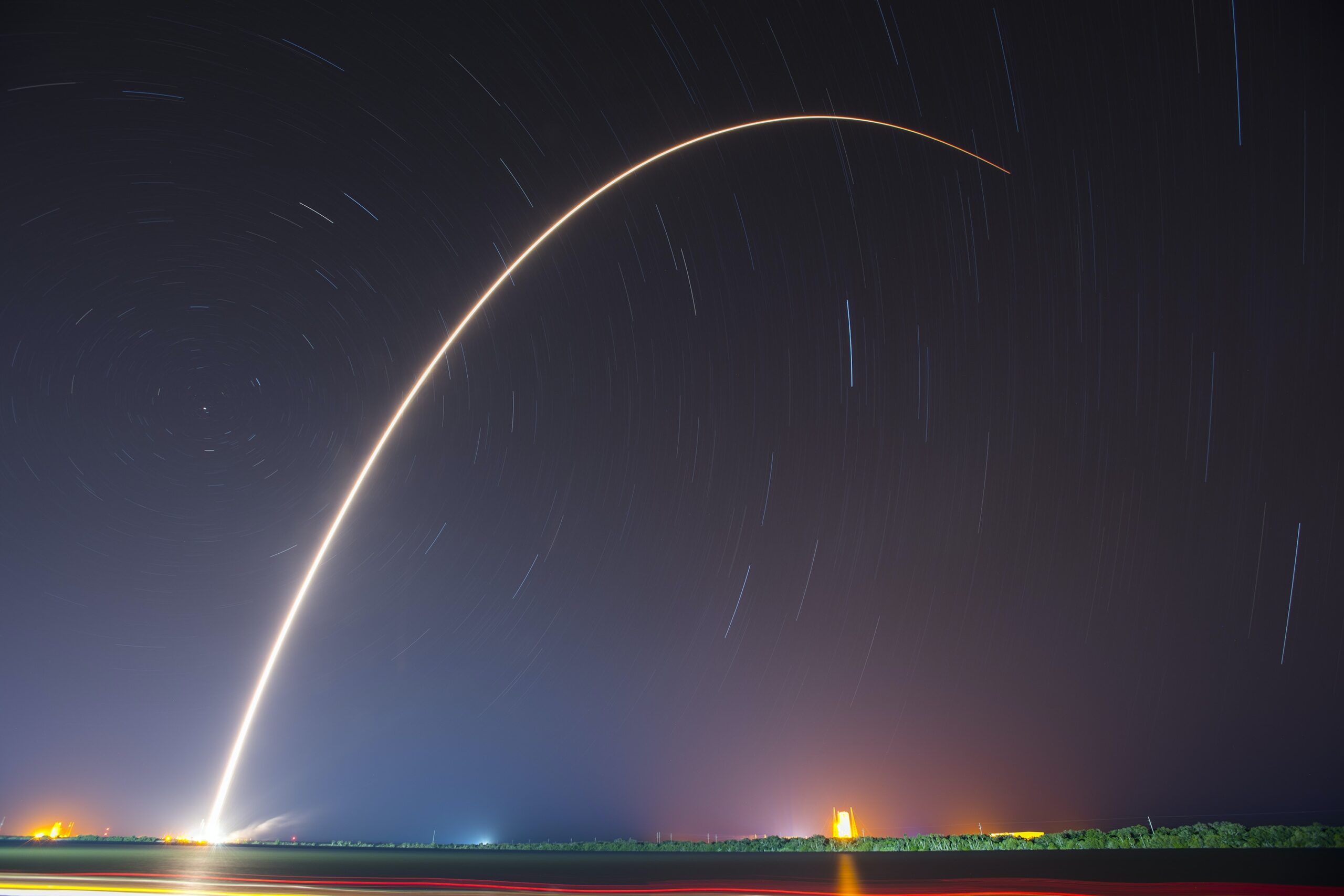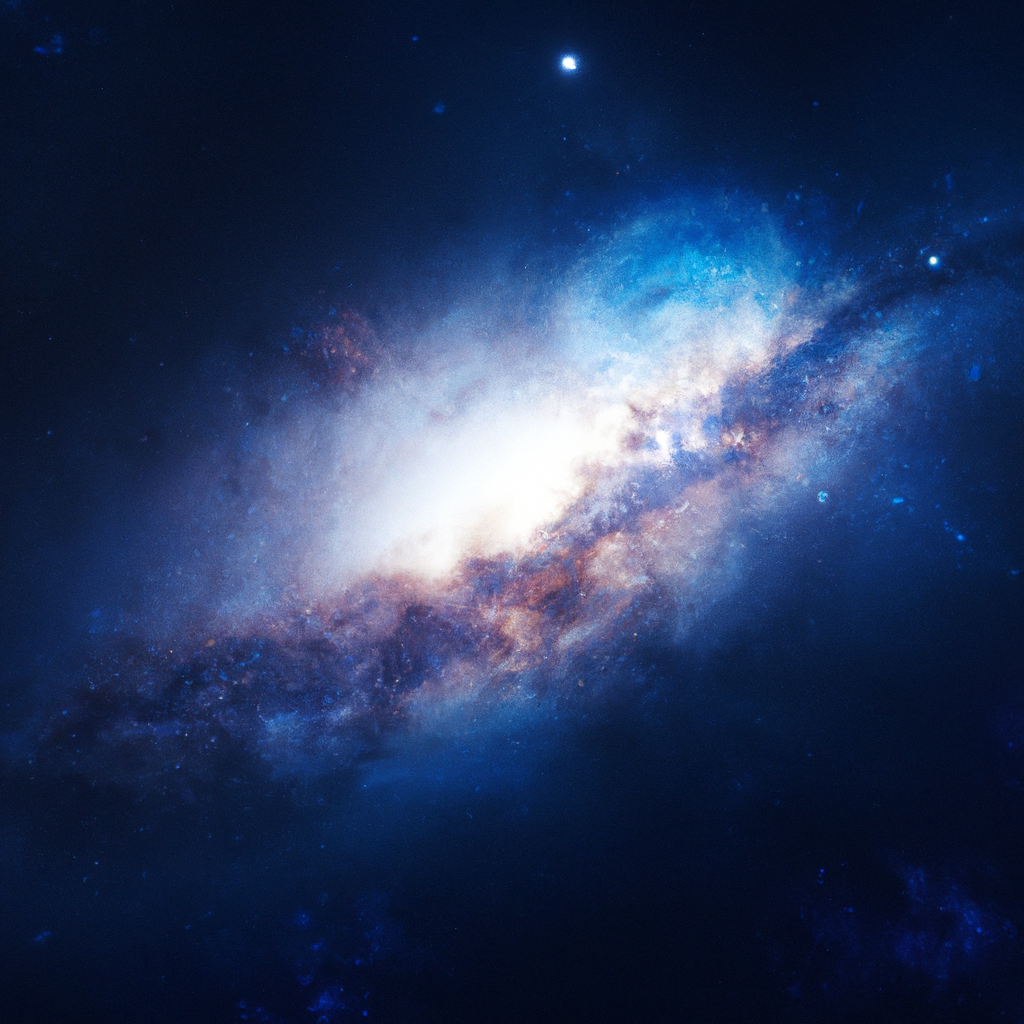Imagine a future where artificial intelligence (AI) plays an integral role in our exploration of space and the mysteries of the universe. From analyzing vast amounts of data to piloting spacecrafts, AI has the potential to revolutionize the way we understand and venture into the great beyond. In this article, we will delve into the fascinating world of AI’s role in space exploration and astronomy, exploring how it assists scientists, enhances our understanding of celestial bodies, and enables us to reach new frontiers in our quest for knowledge. Get ready to embark on an insightful journey into the intersection of AI and the cosmos.
Understanding AI
Artificial Intelligence (AI) refers to the development and use of computer systems capable of performing tasks that would typically require human intelligence. It involves the simulation of human-like cognitive functions such as learning, problem-solving, and decision-making. AI technology has evolved significantly over the years, with the goal of developing machines that can mimic human intelligence and perform complex tasks with accuracy and efficiency.
Evolution of AI technology
The evolution of AI technology can be traced back to the mid-20th century. The field of AI research and development gained momentum with the emergence of electronic computers that could perform calculations and execute instructions. In the early years, AI focused on developing programs that could mimic human intelligence in reasoning and problem-solving. Over time, advancements in computer processing power, algorithms, and data availability led to the development of AI systems capable of machine learning, deep learning, and neural networks.
Types and categories of AI
AI can be categorized into various types based on its capabilities and functionalities. One of the primary categories is Narrow AI, also known as Weak AI, which is designed to perform a specific task or set of tasks. Examples of Narrow AI include image recognition systems, voice assistants, and recommendation algorithms. On the other hand, General AI, also known as Strong AI, aims to exhibit human-level intelligence and perform any intellectual task that a human being can do.
Within the realm of space exploration and astronomy, AI plays a crucial role in various aspects, including satellite operations, telescope observations, astronomy data analysis, space probes and rovers, predicting space weather, and future space missions.
Relationship between AI and Space Exploration
The relationship between AI and space exploration dates back several decades. AI has been instrumental in enabling scientific advancements and discoveries in the field of space science. AI technology has played a significant role in enhancing our understanding of the universe, expanding our knowledge of celestial objects, and aiding in the exploration of distant planets and galaxies.
Historical perspective on AI use in Space Science
AI has been used in space science for many years, with the earliest applications dating back to the 1960s. The first major AI applications in space exploration involved spacecraft navigation and control systems. These systems utilized AI algorithms to autonomously navigate through space, calculate trajectories, and make complex decisions based on the data available.

Significance of AI in space exploration
AI brings a range of benefits to space exploration. Firstly, it enables autonomous decision-making, reducing the need for constant human intervention and allowing for more efficient operations. Secondly, AI can process large amounts of data quickly and accurately, allowing scientists to analyze vast amounts of information and make discoveries more efficiently. Lastly, AI can improve the safety of space missions by identifying potential risks and suggesting mitigation strategies.
Current AI technologies used in space exploration
In recent years, there has been a surge in the use of AI technologies in space exploration. One such technology is machine learning, which allows AI systems to learn from data and improve their performance over time. machine learning algorithms are used to analyze large datasets collected from space probes, telescopes, and satellites, helping scientists uncover patterns and make significant astronomical discoveries.
AI in Satellite Operations
Satellites play a crucial role in space exploration and communication. They provide vital data and facilitate global communication and navigation systems. AI plays a significant role in satellite operations, improving communication, data interpretation, and predictive maintenance.
Role of AI in satellite communication
AI technologies enhance satellite communication by optimizing signal transmission, reducing interference, and improving data transfer rates. AI algorithms can analyze real-time data to identify and resolve communication issues, ensuring uninterrupted satellite communication.
AI and satellite data interpretation
Satellites collect a vast amount of data, including images, measurements, and telemetry. AI techniques, such as image recognition and data mining, enable efficient interpretation and analysis of satellite data. These technologies can detect patterns, identify anomalies, and aid in the extraction of valuable information from the vast amounts of data gathered by satellites.

Predictive maintenance of satellites using AI
Maintaining and servicing satellites is a challenging task. AI can help predict and prevent potential failures in satellite systems by analyzing telemetry data and identifying patterns indicating impending issues. This allows for proactive maintenance and reduces the risk of satellite malfunctions or downtime.
AI in Telescope Observations
Telescopes are essential tools for astronomers to observe celestial objects and gather information about the universe. AI technology has revolutionized telescope observations, enabling more efficient sky surveys, enhancing resolution, and improving spectrum analysis.
Automated sky surveys
AI algorithms can automate the process of surveying the night sky and capturing images of celestial objects. By using machine learning techniques, telescopes can autonomously detect and classify various objects such as stars, galaxies, and asteroids, expanding our knowledge of the universe.
AI in resolution enhancement
AI techniques, such as image super-resolution, can enhance the resolution and quality of telescope images. By analyzing and processing captured images, AI algorithms can enhance details, reduce noise, and improve the clarity of astronomical observations. This allows astronomers to observe faint objects or features that were previously difficult to detect.
AI in spectrum analysis
The spectrum analysis of celestial objects provides valuable insights into their composition, temperature, and other properties. AI algorithms can assist in analyzing complex spectra, identifying patterns, and extracting relevant information. This enables astronomers to uncover hidden characteristics and gain a deeper understanding of astronomical phenomena.

AI in Astronomy Data Analysis
The analysis of astronomical data is a complex and time-consuming task. AI technologies have significantly improved the efficiency and accuracy of data analysis, enabling discoveries and advancing our understanding of the universe.
AI in detecting exoplanets
Finding exoplanets, planets outside our solar system, is a challenging task due to their distance and the vastness of the universe. AI algorithms can analyze astronomical data, such as light curves captured by telescopes, to identify potential exoplanet candidates. These algorithms can detect subtle changes in brightness caused by the transit of planets in front of their host stars.
AI in mapping the universe
Mapping the universe requires the analysis and interpretation of vast amounts of astronomical data. AI techniques, such as clustering and data visualization, can analyze large datasets and create detailed maps of galaxies, star clusters, and other celestial structures. This aids astronomers in understanding the spatial distribution and evolution of objects in the universe.
AI in galaxy classification
Astronomers classify galaxies based on their shapes, structures, and properties. AI algorithms can learn from existing classifications and assist in automating the galaxy classification process. By analyzing images and extracting relevant features, AI can classify galaxies accurately, facilitating the study of galaxy formation and evolution.
AI in prediction of astral events
AI can analyze historical astronomical data to predict the occurrence of celestial events such as supernovae, comets, and meteor showers. By identifying patterns and correlations in the data, AI algorithms can provide valuable insights on the timing and characteristics of these events. This aids astronomers in planning observations and maximizing scientific discoveries.

AI in Space Probes and Rovers
Space probes and rovers are essential tools for exploring distant planets and gathering information about their geological and atmospheric conditions. AI plays a vital role in navigation, terrain analysis, and autonomous decision-making for these robotic explorers.
Role of AI in navigation and landing
Navigating through space and landing on distant planets pose significant challenges. AI algorithms enable precise navigation by analyzing sensor data, calculating trajectories, and making real-time adjustments. These algorithms help space probes and rovers reach their intended destinations safely and efficiently.
Role of AI in terrain analysis
AI algorithms can analyze images captured by space probes and rovers to understand the composition and geological characteristics of the terrain. By identifying obstacles, hazards, and potential areas of scientific interest, AI helps in planning optimal routes and maximizing the scientific output of these missions.
Autonomous decision making
AI enables space probes and rovers to make autonomous decisions based on the data they collect. By using machine learning and decision-making algorithms, these robotic explorers can adapt to changing conditions, prioritize scientific objectives, and optimize resource usage. This autonomy reduces the dependence on Earth-based control and enables more efficient and agile exploration.
AI in Predicting Space Weather
Space weather refers to the conditions and phenomena that occur in the space environment, particularly those that can impact Earth and its technological systems. AI technologies play a crucial role in predicting and mitigating the effects of space weather events on spacecraft and satellite operations.

Role of AI in predicting solar flares
Solar flares are explosive events on the Sun’s surface that release massive amounts of energy. Predicting and forecasting solar flares is vital for spacecraft and satellite operators to take necessary precautions and avoid potential damage. AI algorithms can analyze historical solar flare data, correlate it with other space weather parameters, and predict the likelihood and intensity of future solar flares.
AI’s role in predicting geomagnetic storms
Geomagnetic storms occur when solar particles interact with Earth’s magnetic field, leading to disturbances in the magnetosphere. These storms can adversely affect satellite communications, power grids, and other technological systems. AI algorithms can analyze real-time space weather data, such as solar wind parameters and magnetometer readings, to predict the occurrence and severity of geomagnetic storms. This helps in precautionary measures and mitigating the potential impacts on spacecraft and Earth-based infrastructure.
Impact of AI on spacecraft safety
AI technologies significantly improve spacecraft safety by providing early warning systems, guiding decision-making, and optimizing mission operations. By predicting and mitigating space weather effects, AI helps safeguard spacecraft from potential hazards, ensuring their longevity and reliability.
AI in Future Space Missions
The future of space exploration holds great promise, with AI playing a vital role in enabling ambitious missions and advancements in space technology.
Robotic missions
AI technologies will continue to enhance the capabilities of robotic missions, allowing for increased autonomy and efficient scientific exploration. Robotic missions equipped with advanced AI systems can venture into hazardous environments, conduct scientific experiments, and gather valuable data from distant planets, moons, and asteroids.
Human missions
AI will also play a role in human missions to space. AI-based systems can assist astronauts in various tasks, such as navigation, research, and life support. By leveraging AI, human missions can benefit from advanced decision-making, increased safety measures, and efficient resource management.
Interstellar missions
AI holds great potential for interstellar missions, which aim to explore and travel beyond our solar system. With the vast distances involved and the need for long-duration missions, AI will be crucial in enabling autonomous spacecraft capable of making complex navigational decisions and overcoming communication delays.
AI-based designs for spacecraft
AI can revolutionize spacecraft design and optimization, enabling the development of more efficient and reliable systems. AI algorithms can analyze complex structural and operational data, leading to innovative designs, improved aerodynamics, and enhanced mission performance.
Challenges and Limitations of AI in Space Exploration
While AI offers immense potential for space exploration, several challenges and limitations need to be addressed to fully harness its benefits.
Technical challenges
AI technologies require significant computational power and storage capacity, which can be challenging to implement in space missions where resources are limited. Overcoming these technical challenges requires the development of specialized hardware and software tailored to the specific requirements of space exploration.
Data reliability and integrity issues
Space missions generate vast amounts of data, which need to be transmitted back to Earth for analysis. Ensuring the reliability and integrity of this data is crucial, as errors or corruption can lead to inaccurate results and compromised scientific discoveries. AI algorithms need to be robust and resilient to handle such data reliability challenges.
Limitations of autonomy and self-learning in space
While AI enables autonomous decision-making, complete autonomy may not always be feasible or appropriate in space missions. There might be situations where human intervention or control is necessary, especially in critical or unforeseen circumstances. Striking the right balance between autonomy and human oversight is crucial for the success and safety of space exploration endeavors.
Ethical Considerations of AI in Space Exploration
As AI technology becomes more prevalent in space exploration, ethical considerations must be addressed to ensure responsible and beneficial use.
AI decision-making and accountability
AI systems making critical decisions in space missions raise questions regarding accountability and liability. It is essential to establish clear guidelines and frameworks to ensure transparency, fairness, and accountability in the decision-making process of AI systems in space exploration endeavors.
Privacy and data security
With the growing reliance on AI for processing and transmitting sensitive data, safeguarding privacy and ensuring data security are paramount. Robust encryption protocols, secure data transmission, and strict access control must be implemented to prevent unauthorized access or data breaches.
Potential for weaponization of space AI technology
As AI technology advances, there is a potential risk of its weaponization in space. AI-powered autonomous weapons, if misused, can pose significant threats to not only space assets but also global security. Regulatory frameworks and international cooperation are essential to prevent the misuse of AI technology in space exploration and maintain peaceful exploration initiatives.
In conclusion, AI has become an indispensable tool in space exploration and astronomy. From satellite operations to telescope observations, AI technology has revolutionized the way we explore and understand the universe. By enabling autonomous decision-making, optimizing data analysis, and predicting space weather, AI brings numerous benefits to space missions. However, challenges such as technical limitations, data reliability, and ethical considerations must be addressed to ensure the responsible and effective use of AI in space exploration. With continued advancements and developments in AI technology, the future of space exploration holds great promise, with AI playing a pivotal role in enabling groundbreaking discoveries and advancements in our understanding of the cosmos.










